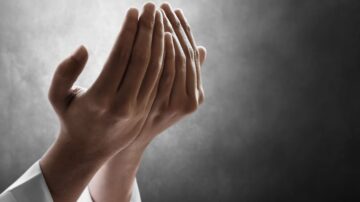Hajj is an obligation which none can undertake except those who are strong as well as honest, and none can perform its rites in full except those whom Allah has granted good knowledge and healthy bodies. In addition, its superior horizons cannot be perceived except by those who have perfect faith, sound body, great heart, and tranquil soul.
Hajj needs traveling to the sacred places, and travel in fact is a part of torment. In Hajj one departs homeland and children, and spends much money. Doing all such things needs true trust in Allah Almighty and great physical and spiritual forbearance. This is because Man loves money by nature, and children may lead to cowardliness—one may be afraid of departing from one’s children by taking the adventure of travel, and love of one’s homeland is innate.
It is not easy to perform Hajj rituals with a weak body or a weak soul. To clarify, circumambulating the Kabah seven times and going between As-Safa and Al-Marwah within the huge crowds of pilgrims, necessitates combining both strength and mercy. Such “merciful strength” is necessary to perform the rites of Hajj without causing someone to fall, pressing against a woman, or pushing a child severely. Furthermore, staying at MountArafah and at Mina—which may occur in an unaccustomed climate, with different kinds of food and drink and different times for sleeping and waking up—needs a healthy body and a pure soul.
This will surely make one strong and forbearing, and at the same time merciful to the weak and sympathetic to the miserable and the needy. In the Farewell Hajj, Allah’s Messenger (peace and blessings be upon him) would take hold the rein of his she-camel and pull it forcibly in order to prevent it from rushing into the crowd of the pilgrims. He further pointed with his honorable right hand and called people saying, “O people, keep calm! Keep calm!”
As shown above, it is clear the important role hajj plays in developing this “merciful strength” in the Muslim character with all of its dimensions and manifestations: modesty, suppression of anger, forbearance, deliberateness, leniency, and good manners.
In this regard Allah Almighty says:
{And vie one with another for forgiveness from your Lord, and for a Paradise as wide as are the heavens and the earth, prepared for the righteous; those who spend (of that which Allah hath given them) in ease and in adversity, control their wrath and are forgiving toward mankind; Allah loveth the good-doers.} (Aal `Imran 3:133–134)
The qualities mentioned in the above verse are supposed to be maintained by Muslims all the time, but they gain much more weight during Hajj.
The merciful strength—or the mercy shown by strong people—is the most excellent quality one may acquire, the most supreme level which the reformers pursue, the greatest idea of which wise people think, and the most beautiful thing eyes may see. Some people call for the oppressive strength which is based on domination, love for revenge, self-conceit, and arrogance. This evil and oppressive strength, in fact, marks only unwise persons.
Islam calls for acquiring all kinds of strength: in mind and thought, in body, in heart and soul, and in number and war material. Still, it is the strength of the merciful which safeguards religion, shields truth, protects the honor of Muslims, defends sacred places, helps the oppressed, and ensures safety and security for people as a whole. Allah Almighty says:
{Make ready for them all thou canst of (armed) force and of horses tethered, that thereby ye may dismay the enemy of Allah and your enemy, and others beside them whom ye know not. Allah knoweth them. Whatsoever ye spend in the way of Allah it will be repaid to you in full, and ye will not be wronged. And if they incline to peace, incline thou also to it, and trust in Allah. Lo! He is the Hearer, the Knower.} (Al-Anfal 8:60-61)
It is relevant here to quote the following story:
Once a youth passed by the Messenger (peace and blessings be upon him) and the Companions said commenting on his apparent strength, “Had this been in Allah’s cause (jihad)!” The Prophet told them that if he has come out to provide for his young children, then it is considered in Allah’s cause.
And if he has come out to support his aged parents, then it is in Allah’s cause. And if he has come out to maintain himself and guard himself from prohibitions, then it is in Allah’s cause. On the other hand if he has come out ostentatiously and showily, then it is in Satan’s cause.
Dr. Muhammad Sayyid Ahmad Al-Musayyar

